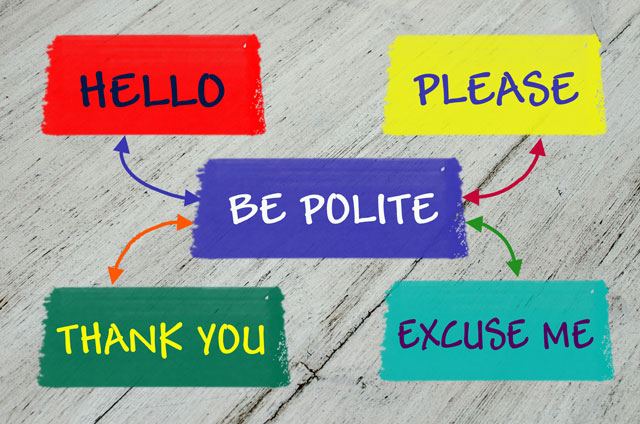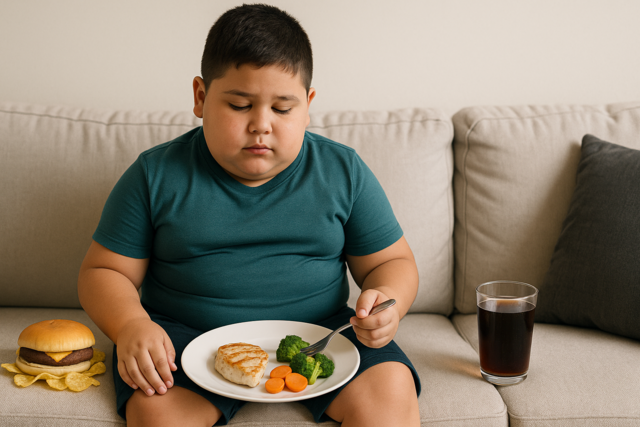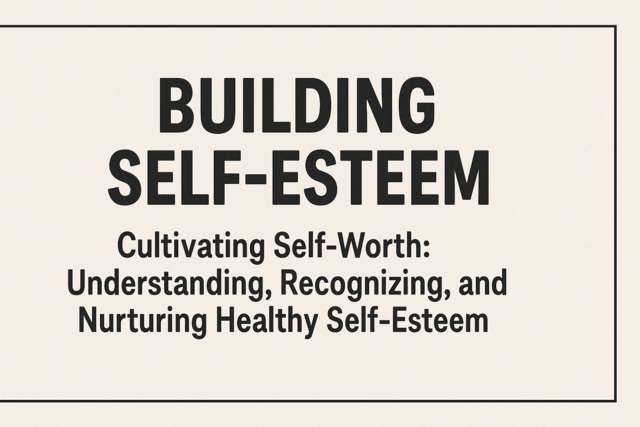In order to identify self-esteem in a child, and then work on building it up, you need to know what low self-esteem looks like. Once you know many of the signs that children with low self-esteem may have, you can begin to work on helping them improve upon it.
What it Looks Like
Chances are you have a pretty good idea of what low self-esteem may look like, at least in the basic sense of things. If you see a child who is withdrawn, for example, there is a good chance that they are suffering from low self-esteem. But there are some issues beyond that, and other factors to consider. Just because you see a child, and he or she is withdrawn that day, it doesn't necessarily mean they have low self-esteem. Perhaps you caught them on a bad day, they are not feeling well, or they are going through some personal emotional issues (e.g., death in the family, divorce in the family, or they just had a fight with their best friend). It's really more about what happens most of the time.
Every one of us can have a day that throws us off, or keeps us feeling down. But it's how our personality typically is that makes the difference. If a child is consistently down, withdrawn, or shows other signs of low self-esteem, that is when adults need to be concerned, and possibly take action to help make improvements.
Here are some signs that a child may have low self-esteem:
-
Becoming frustrated at simple things. It is normal for children to get a little frustrated if they can't master something new to them, but when children consistently have the "I can't do it" mentality, it is usually a sign of low self-esteem.
-
Talking negatively about themselves, such as saying they are stupid, fat, nobody cares about them, or they will never learn how to do something.
-
Learned helplessness, which happens when a child believes they will not be able to do things. They believe that they will continuously fail at things, which is a learned behavior.
-
Avoiding challenges and risks, without ever trying.
-
Quitting something soon after starting it, or giving up quickly.
-
Acting like a baby, or showing signs of regression.
-
Making excuses or blaming others for them not participating (e.g., That coach is so stupid).
-
Declining grades in school, or a loss of interest in school and other activities.
-
Withdrawing socially, or in school or activities.
-
Having a negative influence from peers, or becoming very sensitive to how others feel about him or her.
-
Being aggressive or bullying
Children may not exhibit all of these signs, but they are common ones that adults will want to watch out for. Observed as a consistent behavior, it could mean the child has low self-esteem.
At one time it was typical for teenagers to have jobs, at least for the summer. However, as the economy has worsened, teens have largely been losing their employment opportunities. This is because there are few jobs for them to apply for, and many adults have to take jobs teens have typically filled, just to work and pay the bills. This has created a lot of stress in the life of a teen, as well as the parents who think their teen just isn't trying hard enough to find a position. Parents need to be supportive, rather than discouraging, with teens who are struggling to find work. The economy has placed barriers beyond their control, and criticism for not finding work can be damaging to their self-esteem.
Ways to Improve
Once you have identified a child that has low self-esteem, there are things that can be done to help build it up. And the good news is that it is not limited to parents to doing this effectively. Teachers, friends, family members, and other adults can help a child build their self-esteem.
-
Watch your words. It is important for adults to watch what they say to children. For example, if a child drops a glass of milk on the floor, how the adult responds is important. Saying something like, "You are so stupid, look at this mess you made," is going to have a negative impact on the child's self-esteem.
-
Role model. The adults in every child's life are role models for how one should behave. Whether we realize it or not, children are always observing us, and they will go on to mimic that behavior. As such, adults need to make sure that the behavior they are displaying is something they want children repeating.
-
Redirecting beliefs. If a child says to an adult that they are stupid, or that they can't do something, the adult should respond in a manner that will help to redirect the thought. For example, saying something like: "I think you would be great at doing this, you just need to practice a little more," will have a positive impact on the child's self-esteem.
-
Nurture and love. Children need a safe, loving, and nurturing environment in which to grow up. When parents, or other adults, can provide this, they will feel safer and as if their lives are more predictable and comforting.
-
Get them involved. Children need to be involved in activities that will let them learn, express themselves, challenge them, and test their skills. It is important to get feedback from the child as to what type of activities interest them, and try to get them into those. Some parents try to force children to engage in activities that they do not like (e.g., making them play soccer, for example), which will not have a positive impact on their self-esteem. Volunteer work is another great way to get kids involved, and help build their self-esteem.
-
Give responsibilities. Giving children age-appropriate responsibilities is a good way to help build their self-esteem. Determine what they can do, get them involved in doing it, and reward or praise them for their hard work.
Whether there are problems at home or at school, parents, caretakers, teachers, and the school counselor can work together to help build a child's self-esteem. Building a child's self-esteem is often a team effort, yet it's one that everyone benefits from. A child who has a healthy self-esteem will likely grow up to be a productive citizen who is a positive, contributing member to their community.
Seeking Professional Help
At times, children may have such poor self-esteem issues that getting a professional involved may be recommended. This is especially true for those children who seem depressed. Others who may benefit from working with a professional include children going through difficult times, such as a family divorce or death in the family, or if they exhibit self-destructive or dangerous behaviors. If they are posing a threat to themselves or to others, it's time to seek professional help.
Additionally, a small percentage of children may suffer from mental health disorders impeding their self-esteem, or narcissism (when they have a grandiose sense of self, or may be overtly selfish or self-absorbed). All of these issues may be grounds for speaking with a mental health professional for evaluation.
Ideally, parents can speak with a school counselor to get recommendations, but they will want to seek the assistance of a professionally licensed psychologist or family therapist. A professional in the field of psychology and child behavior will have the resources, tools, and knowledge to provide the help the child needs. Many parents avoid taking their child to a professional for help out of shame or lack of funding. There is no shame in getting a child the help that they may need. That assistance may keep the children from hurting themselves, or others, and can often get kids on the right track to having a healthy self-esteem. And if money is an issue, find out what free or low-cost professional resources are available in your area. Most cities have such professionals who will work pro bono, as well as scholarship opportunities to help cover expenses.
Looking Ahead
Words Matter
Communication is one of the most important things there is when it comes to helping a child build a healthy self-esteem. Communication can be verbal, but it can also be non-verbal. Regardless of which an adult is using, it is important to keep this in mind as an important tool that will have an impact on another's self-esteem level.
In this article, we are going to take a look at how communication, specifically words and body language, plays a role in helping a child to feel good about themselves. Adults have a lot of power in their words and how they communicate with children. It's important that they use that for the betterment of the child's self-esteem, rather than for tearing it down.
Stinging, Everlasting
If a child drops something, or if they are getting poor grades on a particular subject, if the adults in their life respond by calling them stupid, or saying things that make them feel as though they are incapable of doing better, they will begin to see themselves as such. Children who hear these words uttered on a regular basis will believe them -- and their self-esteem will suffer as a result.
Not only can what we say sting, or hurt, but we may not even realize the long-lasting impact it can actually have on a child. Some parents use these words because it is something they grew up hearing, or they haven't realized the damage that can actually be done by doing so. Others may do it because they know it hurts and they are angry, so they want to have a hurtful impact on their child.
Avoiding Name-Calling
In order to help build self-esteem in a child, it is crucial that parents and other adults avoid negative name-calling. The negative name-calling can be any words that they are using toward a child, which are usually done out of anger or disappointment at something they have done, or have not done. Some examples of common negative name-calling that parents engage in include:
-
Stupid
-
Lazy
-
Selfish
-
Babyish
-
Idiot
-
Moron
-
Sloppy
-
Clumsy
-
Bad
-
Careless
Non-verbal communication, or body language, is every bit as important as verbal communication. Often times, even with children, there is an impact from the body language that the adults in their life use, in addition to the words that are spoken. We are a society that says a lot without ever opening our mouths. Keep your body language in check when dealing with children.
Keeping it Positive
Everything that a parent wants to address with their child can be done so in a positive manner. And the real kicker here is that it will have a much more effective outcome than the negative route ever well. Here are some examples of what this looks like:
Negative: "You spilled the milk, you are such a clumsy idiot."
Positive: "We all spill things once in a while, let's just try to be more careful next time."
Negative: "You are never going to pass math class; what are you stupid or something?"
Positive: "I think if you really study and apply yourself you can bring this grade up. How about if I work with you to help you understand the concepts better?"
Negative: "I don't know why you even play basketball; you never get a basket."
Positive: "Just keep practicing and eventually you will be hitting baskets. Practice makes perfect."
In each of these scenarios the parent is addressing what it is that they want to address, but they are doing it in a positive way. Taking the positive route is going to avoid insulting the child, avoid hurting their feelings, and is going to empower them to try harder in order to get a better result the next time.
When it comes to dealing with children and what they are doing, aim to focus on word choices that are not going to have a negative impact or leave children feeling boxed in and owning that particular insult. Instead of "Stop acting like a baby," aim for something like "Please act mature, like I know you know how to."
Positive Praise
Although we have been using the word "parent" a lot, it is important to note that coach, teacher, caretaker, or any other adults who are around children, can be used interchangeably. All of the adults in a child's life have a lasting impact on their self-esteem, so it is important that they all try to work at building it, rather than doing things that will negatively impact it.
Adults often are quick to point out when children do something wrong. For example, let's say that two siblings are playing together nicely in their room and an hour goes by without any issues. Then a fight breaks out between them. Most parents concentrate on the fact that they are having a spat, rather than the fact that they spent an entire hour playing together nicely.
Parents need to catch kids doing something good, and let them know they are doing good, just as they would let them know if they thought they were doing something they didn't want them to do. This positive approach will not only help keep them on the track of doing desired behavior more, but it will also help build their self-esteem.
It is also important to praise effort, rather than always looking at the final results. Sometimes kids may put a lot of effort into something, and yet not ace the test, or not hit the shot in basketball; but their effort shouldn't go unnoticed. And by commenting on their effort, they will feel good and their self-esteem will be strengthened.





























